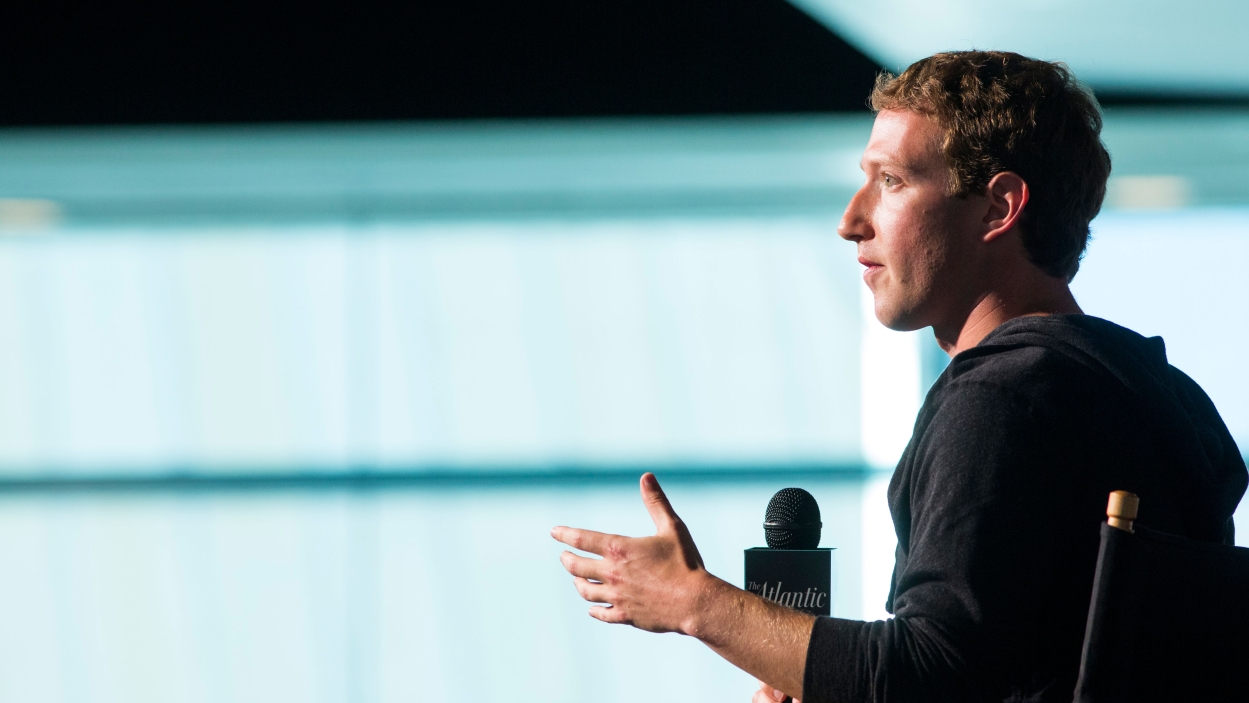Mark Zuckerberg and the birth of Libra
Jaspreet Bindra
I would love to be a fly on the wall of the Winklevii office right now.
Winklevii is the nickname of the Winklevoss brothers, Tyler and Cameron, who claimed that they were the real inventors of Facebook. As anyone who has watched The Social Network knows, they claim to have been cheated out of it by the engineer they hired to code their website. This battle was fought in the dorm-rooms and faculty chambers of Harvard, the law courts of America, and eventually in the battlefield of public opinion, the press and Hollywood. The brothers, who represented the US at Beijing Olympics in rowing, were painted as members of the privileged elite. On the other hand, Mark Zuckerberg was portrayed as the underdog, the nerd who took on the establishment. Neither story is wholly true, but Zuckerberg won this battle decisively, and went on to create the world’s largest social network, one which is admired and feared in equal measure.
Though the Winklevii lost this battle, they girded their loins and went to war. Thwarted and scorned by Silicon Valley as the establishment guys who lost out, they chose the one weapon which was the most anti-establishment of them all—Bitcoin. Using their considerable wealth, and the meagre Facebook settlement they wrung out of a grinning Zuckerberg, they started amassing this renegade currency, and investing in companies building the infrastructure around it. Soon they were the big ‘whales’ in the crypto world, moving the price of bitcoin and other cryptocurrencies by their trades. They also became the first known bitcoin-billionaires, with each brother topping a billion dollars, when Bitcoin crossed $10,000.
The brothers, however, had a burning desire to legitimatise cryptocurrency, especially. They came from a world where rules were written and enforced, where regulation and the rule of law prevailed. Not for them the Wild West world of the Silk Road, or the dope-smoking and Lamborghini-flaunting crazies of the Bitcoin world. So, as their contribution to legitimising Crypto, they founded Gemini—“the regulated cryptocurrency exchange”. Gemini was set up as a trust company regulated by the New York State Department of Financial Services (NYSDFS)… and subject to the capital reserve requirements, cybersecurity requirements, and banking compliance standards set forth by the NYSDFS and the New York Banking Law—as legit and kosher as it could get.
Rumour has it that they chose the zodiac sign Gemini as the moniker for their company, for obvious reasons—the Gemini star sign is twins! Geminis are also clever, adaptable, intellectual but tense and restless. The twins were certainly that.
It is also obvious that their nemesis was watching. From his glass bubble room at 1 Hacker Way, Menlo Park, CA he penned down his thoughts on crypto and Blockchain, about how he believed in a decentralised world, and how crypto was perhaps something he needed to study more. Last year, he picked one of his most talented product engineers David Marcus—an ex-president of PayPal and on the Board of Coinbase—to go explore and build the blockchain and crypto future for Facebook.
A few days ago, Marcus shook up the cryptocurrency and banking world by announcing Libra— “a simple global currency that transforms the lives of billions of people… a reinvention of money”.
Since then reams have been written about Libra, and its cleverly named sister, Calibra (the Facebook not-for-profit entity that will participate in the Libra programme). There are a large number of people claiming how it is not a real crypto currency, that it is not really based on the blockchain, and even that it is not really decentralised. There is speculation as to how Mark Zuckerberg is now looking at dominating money after he dominated social connections, and how the data generated through Libra transactions will be ruthlessly parsed and sold by Facebook. “Mark stole Facebook” people are shouting and “now he is looking to steal Bitcoin”. It is not really crypto, they declaiming, it is Zuckbucks, or Facecoin.
Most of the discussion on Libra has been around how it disrupts money. However, I think there are multiple other use cases of Libra, within the ambit of social networking. Libra can be a currency for peer-to-peer commerce within Facebook subscribers, for instance. So, a homemaker, moonlighting as a baker could sell her cakes to her Facebook friends, and get paid in Libra, which in turn could be used to buy other stuff on the network. Facebook could use Libra to pay content providers—if you post some great video on Facebook, and it gets lots of views and engagement, FB could share some of the advertising dollars with you in Libra. Certain content could be premium content, for example, and can only be viewed or consumed if you pay a certain amount of Libra. The possibilities even as a ‘social currency’ are endless.
Whatever it be, it is certainly a game-changing and audacious move by the world’s largest social network. It is not only the Silicon Valley bubble, or the rancorous crypto world, but central banks and even governments around the world have sat up and taken notice. If Libra does what it claims, it shakes the very foundations of money and capitalism, and even governments. Money has been the most centralised and controlled commodity ever; Libra threatens to disrupt it. In scale.
It is also no coincidence, perhaps, that the name is another Zodiac sign. Gemini is the chameleon. It adapts, say astrologers, while Libra is the sidestepper, with quick and smooth reactions. Gemini and Libra compromises are a real hassle, they maintain, for Libra wants to take the lead in such relationships, and Gemini is the initiator. Since both signs are finicky, trouble looms… And so, while Zuckerberg will have one eye on disrupting the global economic order, perhaps his other eye is on the ex-rowing champions, who would be sitting in their office and thinking, “Here we go again…”
That is why I would love to be a fly on the wall of the Winklevii right now.


